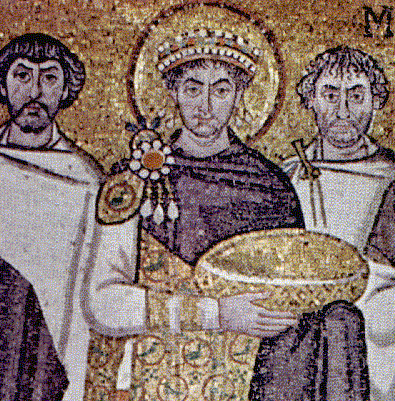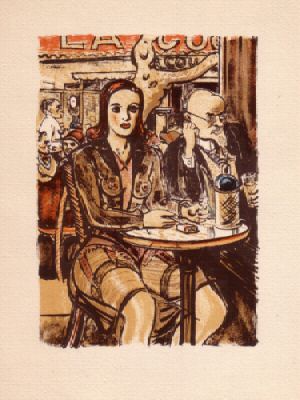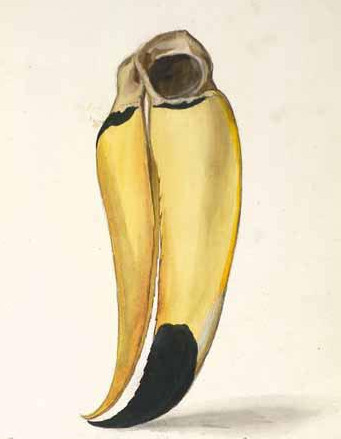Thanksgiving
In honor of this American holliday (first proclaimed by my most favorite of American writers in 1863) let us revel in the myth and speak of a tale of New England independence told by one of the great independent New Englanders, Mr. Thoreau.
Ah, but it is not a tale of independence and the single sentence that betrays his claim to self sufficiency is what I want to look at today.
That is form the first chapter of Walden entitled "Economy" section C, paragraph 19.
What is it in that sentence that stands out? Our hero, disclaiming the egoism of the "I" but using it out of necessity left his father's pencil-making business and attended Harvard College under the patronage of a Mr. Emerson, of whom you must have heard tell. Henry never took a degree, but was a misanthrope and philosopher of the English Major type and learned his letter well. So what stands out of this early-modern Romantic transcendental man's own testiment to individual and self-sustaining life left to himself needing no others? He borrowed the axe! Even Thoreau needed another. It's the most important part of Walden, that he needed another to begin the project. That his writings should say something to us today is mete and well, but never lose sight that he participated, that he joined in the intercourse of friends and the commerce of acquaintances, that he first read Walden at the Concord, Mass Lycee and not in some lonely study far from the madding crowd. And that's what we should meditate on this Thanksgiving. To be a rebel, an individual, and/or the prototypical American outlaw is to be an American wholeheartedly and in full. What Thankgiving celebrates is our involvement with each other, with other cultures, with other nation, with other men and women. To come together in fellowship in the old ways of the feast is not a celebration of family alone, but of the many ways of being this unique creature that is American. For feast is not about eating, but about having enough for the new guests at table, no matter how many. It does not demonstrate our good fortune and wealth but the fecundity of the land and the generousity or our spirit to provide.
We share our tables, and the foods we eat are representative of the new produce of the New World. While we are alone in our pioneering, we are together in the fellowship of pioneers.
I know I speak of an America of the mind, of the book, and not the way we behave in reality. The difference is real here, between ideal and real culture. But I speak the way Thoreau did, and I ask us all to be better. That is the promise of the America, that is the promise of the individual who lives alone but borrows an axe, only to return it sharper. It is the promise of Thanksgiving. So I give thanks for Henry and his fraternal misanthropy. And I wish you and Happy Thanksgiving.
Ah, but it is not a tale of independence and the single sentence that betrays his claim to self sufficiency is what I want to look at today.
Near the end of March, 1845, I borrowed an axe and went down to the woods by Walden Pond, nearest to where I intended to build my house, and began to cut down some tall, arrowy white pines, still in their youth, for timber.
That is form the first chapter of Walden entitled "Economy" section C, paragraph 19.
What is it in that sentence that stands out? Our hero, disclaiming the egoism of the "I" but using it out of necessity left his father's pencil-making business and attended Harvard College under the patronage of a Mr. Emerson, of whom you must have heard tell. Henry never took a degree, but was a misanthrope and philosopher of the English Major type and learned his letter well. So what stands out of this early-modern Romantic transcendental man's own testiment to individual and self-sustaining life left to himself needing no others? He borrowed the axe! Even Thoreau needed another. It's the most important part of Walden, that he needed another to begin the project. That his writings should say something to us today is mete and well, but never lose sight that he participated, that he joined in the intercourse of friends and the commerce of acquaintances, that he first read Walden at the Concord, Mass Lycee and not in some lonely study far from the madding crowd. And that's what we should meditate on this Thanksgiving. To be a rebel, an individual, and/or the prototypical American outlaw is to be an American wholeheartedly and in full. What Thankgiving celebrates is our involvement with each other, with other cultures, with other nation, with other men and women. To come together in fellowship in the old ways of the feast is not a celebration of family alone, but of the many ways of being this unique creature that is American. For feast is not about eating, but about having enough for the new guests at table, no matter how many. It does not demonstrate our good fortune and wealth but the fecundity of the land and the generousity or our spirit to provide.
We share our tables, and the foods we eat are representative of the new produce of the New World. While we are alone in our pioneering, we are together in the fellowship of pioneers.
I know I speak of an America of the mind, of the book, and not the way we behave in reality. The difference is real here, between ideal and real culture. But I speak the way Thoreau did, and I ask us all to be better. That is the promise of the America, that is the promise of the individual who lives alone but borrows an axe, only to return it sharper. It is the promise of Thanksgiving. So I give thanks for Henry and his fraternal misanthropy. And I wish you and Happy Thanksgiving.






0 Comments:
Post a Comment
<< Home